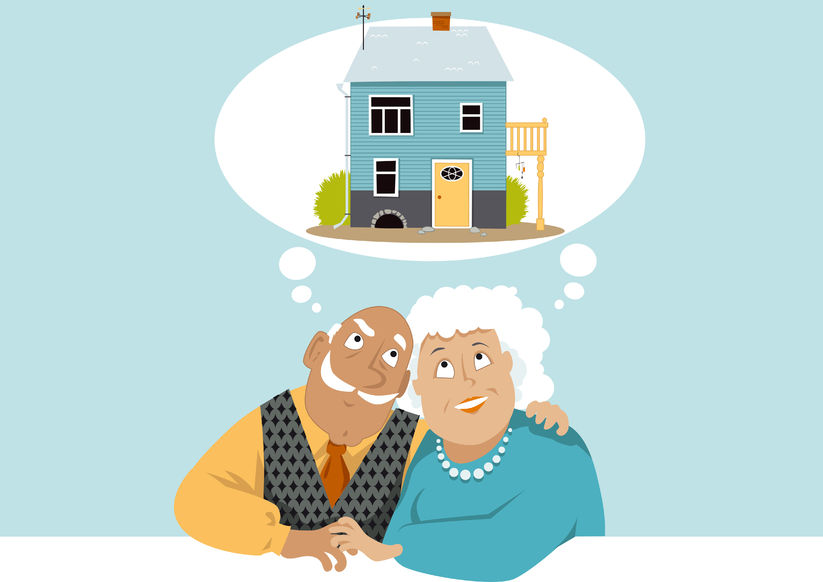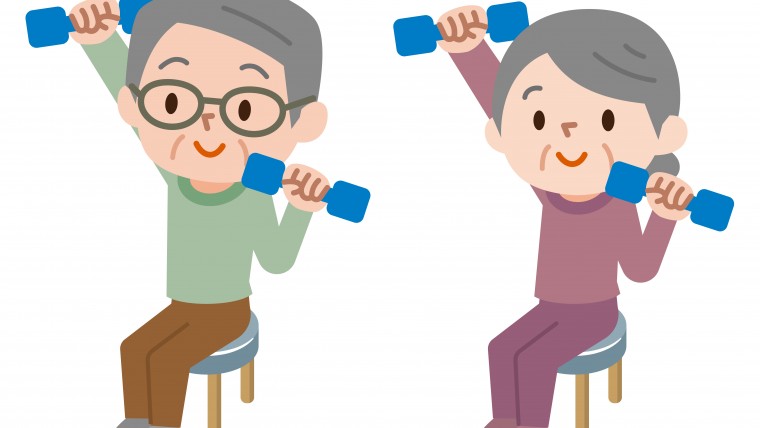Are you thinking about moving to a residence that’s exclusively for autonomous retirees and pre-retirees? It’s not a bad idea! But there are a few important things to know before you set out on this adventure.
Living in a Retirement Home Could Be Perfect for you
So, you’ve been thinking about moving to a retirement home for a while but you’re worried that you’re too alert or too healthy to live in a residence for seniors? You couldn’t be more wrong! The days of gloomy hospices and sad “old folks homes” are long gone.
Residences for seniors have changed a lot, especially those designed with the autonomous client in mind. Some apartment complexes even have a Club Med-like feeling thanks to their wide range of activities, amenities and services.
Residences With Something for Everyone
The market is actually quite diverse and has something for everyone’s preferences and budgets. Finding a residence in the private sector is easier because you can select among more or less luxurious, spacious and expensive accommodations.
Some buildings have fewer than 100 units, others more than 800. Some residences also offer services exclusively for autonomous people, others for autonomous and semi-autonomous people, meaning those who need some help to perform certain daily tasks: making meals, getting dressed, bathing, etc.
The Benefits of Living in a Residence
In a residence, you can rent a studio apartment or a condo with 2 to 4 rooms. You can also take care of your apartment yourself and make yourself meals if that’s what you prefer.
What makes it very advantageous to live in a residence is the wide range of services that they offer. In general, the larger the residence, the more services they provide.
Beware: some services are included in the cost of rent, whereas others must be paid for on a per-use basis. If you choose these services, you must pay extra for them – which can increase the costs of living. That is why it is so important to research which services are included in the rent and which are not, but that are nonetheless available to you when you decide to move into a residence.
Available Services
When you live in a residence for seniors, you can take advantage of the many services that are offered to residents:
- Doctor available on-site periodically
- Nurse available during the day and night
- Surveillance cameras
- Restaurants
- Theatre
- Theme nights
- Indoor and outdoor pools
- Jacuzzi and sauna
- Billiard room
- Games for children
- Home cinema
- Gift shop
- Library
- Internet room
- Pharmacy
- Hairdresser
- Convenience store
- Banking services
- Chapel
- Shuttle service
- Gym
- Laundry room
- Postal service
- Housekeeping
- Transportation service
There really is something for everyone. That being said, nobody is obligated to participate in any activity that doesn’t interest him or her.
Especially when the weather is bad, you will be grateful to have so many services all in one place. Living in a residence also gives you the chance to prevent feelings of loneliness that can sometimes arise as we age, by discovering new things with other residents. You will also feel safe in a residence. And don’t worry, you can come and go as you please, you don’t need to ask anyone’s permission.
You May Need Time to Adjust to Living in a Residence
On the other hand, there are some people – very much accustomed to living in an individual house – that may find it difficult to find themselves with many other retirees under the same roof. They may feel that they no longer have any privacy. This is totally normal. It will take time to adjust to your new surroundings!
Tips on How to Make the Right Choice
After making the choice to move into a residence and before starting to plan your move, it’s really important to identify your needs. This essential step will help you choose the residence that will suit you best. You should take the following into consideration:
- Your budget
- Your preferences
- The services they offer
- The environment
By asking yourself a few questions, you can easily identify your preferences and your requirements, determine the kind of place you would like to retire in and at the same time, avoid moving unnecessarily.
Take Your Time Before Choosing Your Residence
First of all, think about location.
Where would you like to live? Are you looking for a peaceful environment or one that is livelier? Do you want to live close to your children, your family and friends? Do you want to live close to a particular shopping area, hospital, church, park, bicycle path or maybe public transportation?
Once you have chosen the neighbourhood, think about the type of accommodations you’re looking for.
Would you prefer to live in a high-rise or a smaller, more intimate residence? Are you looking for a studio apartment or a condo? Do you want a spare room for your friends or your grandchildren? Are you looking to meet new people or do you prefer your privacy? Some people prefer to put their money toward their homes rather than activities or going out and vice versa.
Don’t forget to ensure that you will have enough space for the belongings you absolutely want to keep.
Another important thing to keep in mind are the services that you will need. It’s easy to be drawn to a residence with a swimming pool but if you only use it a few times a year then you’re paying a lot of money for an unnecessary expense. That money could have been put toward an activity that is more meaningful.
Ask yourself which activities you want to do.
Do you prefer physical activity or cultural outings? Will you want to participate in organized outings or activities? Do you want to take care of your space by yourself and make your own meals? Do you need someone to accompany you on outings? Do you need a parking spot for your vehicle?
Other Important Questions
Can you stay in this place if your health deteriorates? If yes, under which conditions? What are the internal rules of the residence? Can you bring your pet with you?
Is there a meeting room where you could host your family? Can you invite your friends and family over to eat? Is there a possibility of getting an apartment with a balcony where you could grow a few plants?
Lastly, evaluate the state of your health and that of your spouse.
Does one of you need medical surveillance, help with daily activities or special medical attention? Do you think you might need care for a shorter or longer period of time? It’s important to keep the other person’s needs in mind and to consider that your situation may change.
Choosing a residence for autonomous and semi-autonomous people could be your best choice. That being said, don’t wait until the last minute to decide, like if you’re ill or grieving. Your choices will be biased because you will feel emotional and then your decisions will inevitably influence your future quality of life. That’s why it’s important to take the time to research all of your options carefully.
Once you have established what your priorities are – make a list of what you want and don’t want – it will be easier to find residences that have what you’re looking for and you can choose through a process of elimination.
There you have it! You’re ready for the next step: visiting the residences in person. Take the time to choose carefully, it’s a very important decision that you’re making. Write down the questions you need to ask. Take the time to meet the staff and some of the residents. Stay long enough that you can get a sense of what the residence is like. Check the cleanliness of the residence and make sure that the services advertised are actually offered.
Don’t forget that housing counsellors at Résidences Québec can help you with the transition to a residence by determining your needs and selecting the residence that will best meet your needs and expectations. Housing counsellors can offer their services free of charge because they are compensated by the network of private residences accredited by the Quebec Ministry of Health and Social Services. Take advantage of their services!
Good luck with your visits!
Need help?
Contact a residence advisor to help you in your search for a residence
844 422-2555
Service free of charge for beneficiaries
Member of ACHQ
Need help?
Contact a qualified residence advisor for help with your search and accompany you until the signing of your lease for FREE.
Our assistance service for the elderly is FREE*
844 422-2555
* Our residence advisors are paid by the network of private residences in Quebec certified by the Ministry of Health and Social Services.



